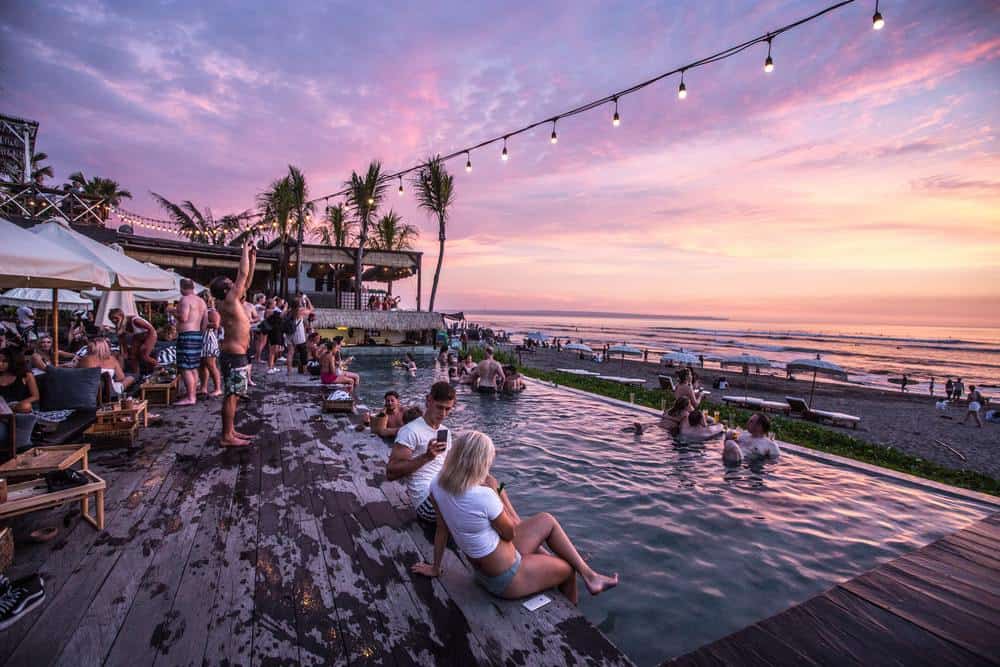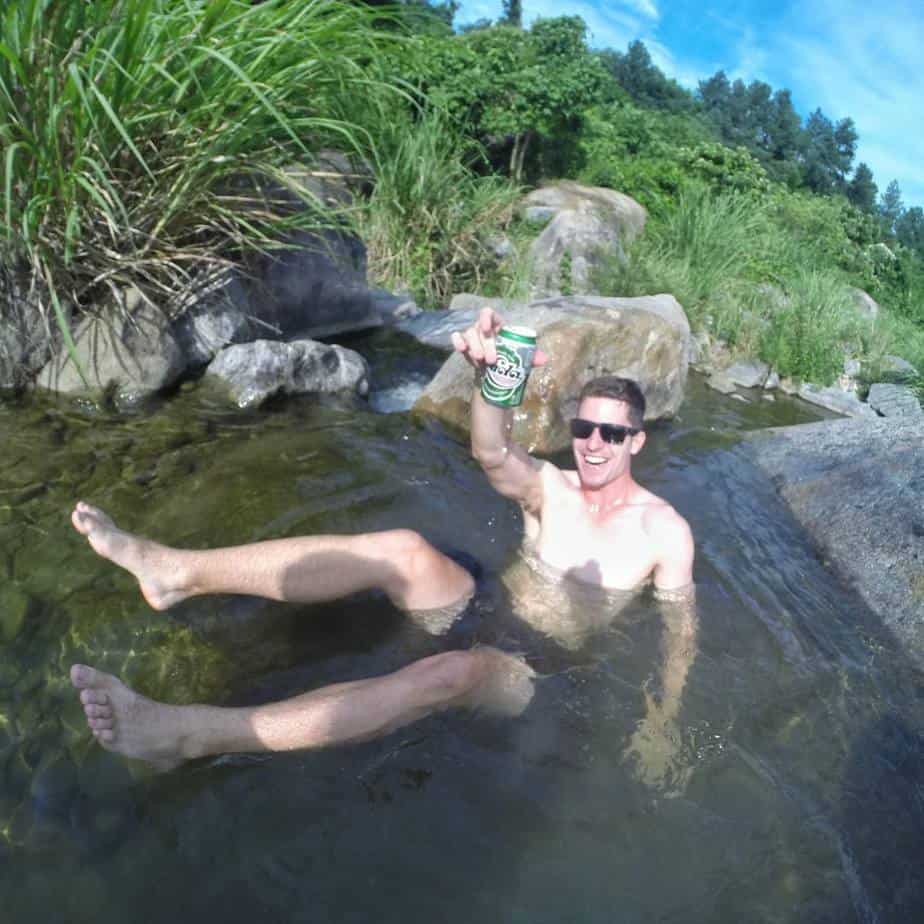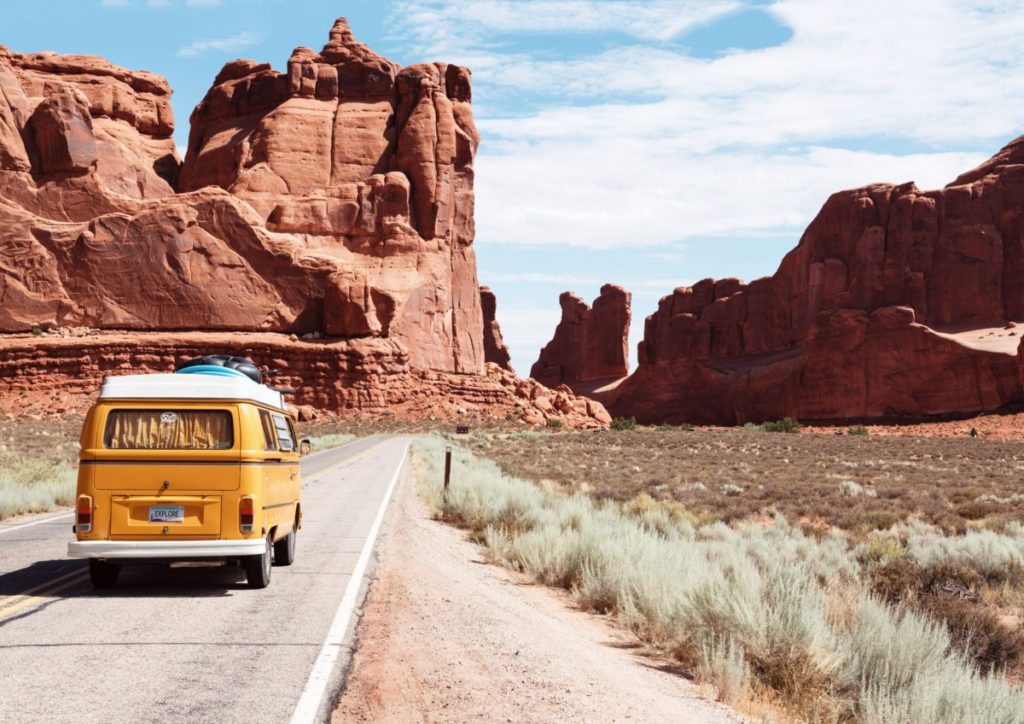Note: This post may contain affiliate links which means if you click on a link and purchase an item, we will receive an affiliate commission at no extra cost to you.
There is a question as old as time for the digital nomad: do you stay or do you go? A home base can provide a sense of security and a place to store your things, but constant travel can provide the interesting scenery and excitement that draws many to the lifestyle.
Nomads in a popular Facebook group took to the boards to discuss this topic. This is what they had to say.
Some Nomads prefer a home base, for reasons like the ability to store more belongings and overall stability, or the ability to maintain connections:
3. “Visit Nomad Capitalist or google Trifecta Strategy. Andrew Henderson has thought long and hard about this and has formulated some fundamental principles. Some issues. Many people like a particular climate that does not exist year around in a location at which they would like to reside. That is certainly true of us. We like the beach and summer but with cosmopolitan shopping and culture within easy reach. We can satisfy that with Mediterranean summers and Southeast Asian winters.
Another consideration is residency and taxation. Many countries will treat you as a resident and tax you accordingly if you are in their country for more than 6 months out of 12. By doing 4,4,4, which is Andrew Henderson’s Trifecta Strategy, you can avoid most if not all taxation of your income. This is particularly important because many of the places that are attractive otherwise will place you in the highest tax bracket and it will become a major expense.”
4. “Another benefit is that you can accumulate more ‘stuff,’ but visit places with just a carryon.”
5. “Actually, I am at that point, where I think about getting a base somewhere and travel from there, as I find it very tiring to constantly move with all of my stuff around. Even though I travel slow, I found that I sometimes need a kind of “safe place,” that is equipped as per my needs after all these temporary accommodations.”
6. “Yeah, after 10 years nomading, constantly moving and no home got fatiguing for me. Another 15 spent trying to have one base and then traveling which didn’t work that well. The last 10 has been with 2 homes – comfy and with lots of local friends (who we miss and look forward to seeing), then using these as jumping-off points. Works quite well! Granted, we switched them up a bit (i.e moved) so not quite as ‘stable’ as it sounds. Also, maintaining 2 homes requires good systems and still takes us a few weeks to settle in. Really depends on what works best for you and possibly trying out different approaches. Can also change as you age, have different life circumstances…Would say to try a home base where you loved being and was inexpensive, then see how much you stay there vs travel and if it loses its luster. If you’re spending so much time that you’re risking tax residency and/or still love it after a year, maybe look into buying if the market is right. Just renting a home base LT is a net cash loss (unless you’re able to sublet/get Airbnb visitors to stay while you’re away) – buying gives you an asset and lowers monthly cash flow needs (but isn’t always feasible or recommended, eg Vietnam where ownership is tricky at best, properties can be overpriced and rents dirt cheap). Good luck!
7. “I’m using Tenerife as my base. Great weather, great flight connections, great place to invest and a good community also in Europe. And then I travel from there. “
8. “I have a base, but not a house. I call it base because I have friends and is where I practice my hobbies and sports – which I usually don’t while traveling. And because it’s where I store my motorbike and some items that I move to my new apartment every time I come back to my base (desktop chair, fan, some clothes…)
If I had enough money I’d have a base in SEA, another one in Europe and another one in Central America. It’s just so convenient to have a place where you know people and people know you, where you can return to “feel at home” after spending some months on the road.”
9. “I was thinking of basing myself in Spain to travel around Europe, and also to keep up my Spanish and friendships I’ve made there, and then possibly also doing something similar in South America at a later stage. I see there’s some new digital nomad visa for Buenos Aires in the works so was thinking that could be a good option.”
10. “Yes and also working towards this goal. Since 2018 based first in Poland and then South Africa, but after traveling is normalized planning to base in Portugal and maintain residences in NYC, South Africa, and a handful of other countries, moving among them more or less Nomad Capitalist style…”
12. “It feels like a really nice balance which is sustainable for us. You can maintain friendships, be a member of a community, and have some comfort in familiarity. Also having a proper home that is set up for you is amazing. The one downside is it costs far more than what most digital nomads are willing to spend.”
13. “I think that depends on your personality and lifestyle preferences. I like having a ‘home base’ (or two, if you consider my parent’s house in Latin America) I can return to and only travel a couple of months at a time. Or I travel back and forth between my current home base and my childhood home, maintaining friendships and professional relations on both sides of the pond.”
14. “…the home-base sounds good, but the actual home standing empty for long periods of time, doesn’t sound good.”
15. “If you set it up so that it can be sublet or put on AirBnB this isn’t such a problem. Also, the income can be good if you get the right place. It can become difficult if you’re balancing too many places and don’t have reliable people to manage them while you’re gone.”
16. “True, but you really need a good manager. Because it sounds like easy money: renting out property, but I know it can be a real drain on your mental energy. I had an apartment I was unable to sell for a while, while not living there anymore. It’s all okay until it isn’t. I rented it out long-term, so when the tenant left and I was not there, how did I select a new one? Then something broke down, water damage, how to arrange everything? It can be frustrating not being able to check for yourself how bad the damage is, what’s needed to be done and also not being able to check any workers repairing it. Etc. All I know, I’m not overly excited about the prospect of renting out property. Also when I have my ‘own’ place I will need to set up something that AirBnB guests won’t be able to get to everything. Although I’m always very conscious as a traveler I’m in somebody else’s home I see other people…who act like they own the place. Where they can be really [careless] with precious things…”
Other Nomads prefer to move constantly, but also acknowledge there’s a sweet spot for how frequently to change locations:
1. “I personally hate coming back to the same city. I rather choose a new city I never been than coming back to the same city regularly.”
2. “I’m at 12.5 years of nomading. I don’t see the point of a base unless you have a lot of stuff. If you want to visit people, just rent an apt.”
3. “No base for me. I try to fit in 3-6 countries a year if possible.”
4. “I try to spend as much time as possible in one place and move to another place when my visa is expired. I usually go to the same spots but I forced myself to find at least one new place per year. Last time it was the city of Jodhpur. Two years ago it was Lake Toba which is very beautiful. That keeps the balance between having new experiences and being in familiar surroundings and avoiding loneliness.”
5. “I’ve asked myself this before and I think it’s best to have a balance. I stayed in a place one month, which is long enough to build rapport, but also doesn’t prevent you from embracing the new. Picking up every week was too much and I got burnt out. Better to stay in a place for at least one month.”
6. “I slowmad as well. But usually 1-2 months at a time. Depends on the country”
7. “So far 3-4 months is our sweet spot.”
8. “Slow nomading, 3 to 6 months. That works for us.”










Leave a Reply
View Comments